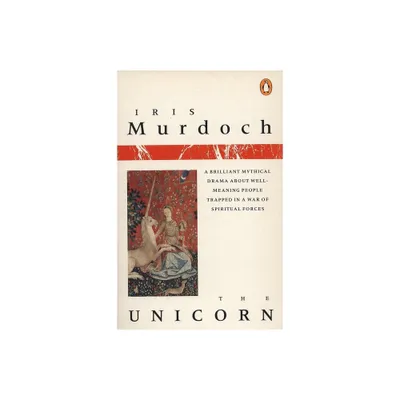Home
Sexuality, Gender, and Power Iris Murdoch's Fiction
Loading Inventory...
Barnes and Noble
Sexuality, Gender, and Power Iris Murdoch's Fiction
Current price: $108.00


Barnes and Noble
Sexuality, Gender, and Power Iris Murdoch's Fiction
Current price: $108.00
Loading Inventory...
Size: Hardcover
*Product Information may vary - to confirm product availability, pricing, and additional information please contact Barnes and Noble
This study explores the overlooked themes of sexuality, gender, and power in Iris Murdoch's fiction, particularly the interplay of power, gender, and sexuality in her characters' personal and social relationships. Gender and sexuality were important topics for Murdoch to consider in her fiction because her views on aesthetics and philosopy were integral to her representation of these themes. Accordingly, Murdoch's representation of gender and sexuality demonstrates her preoccupation with realism and morality, as well as her insistence on individual autonomy and freedom of choice.Since she so vividly depicts the effect of social forces upon the lives of homosexuals and women, her fiction is aligned with social constructionist theory, which maintains that gender and sexuality are shaped by social, cultural, and historical forces. While Murdoch cannot ultimately be classified as a feminist writer, because of her illustration of the social pressures women face, her representation of women bears resemblance to Simone de Beauvoir's often quoted statement: 'One is not born, but rather becomes a woman.'The fiction reveals that Murdoch was especially troubled with the impact social forces had upon individuals who might be socially marginalized because of their genders or sexualities, namely those who display 'nonnormative' gender or sexual behaviors. The author believed that marginalized individuals - like any human beings - needed to cultivate their own 'inner lives' in order to interact properly with their communities, but equally she challenged social prejudices about gender and sexuality by asserting that the community's views on the 'nonnormative' were unloving and morally unjust.In addition to depicting the power of society to impose expectations on individuals of a certain gender or sexual orientation, Murdoch illustrates the notion that power is obtained through knowledge one gains about another's sexual secrets, especially secrets about homosexuality and incest. The study demonstrates that while Mur


















